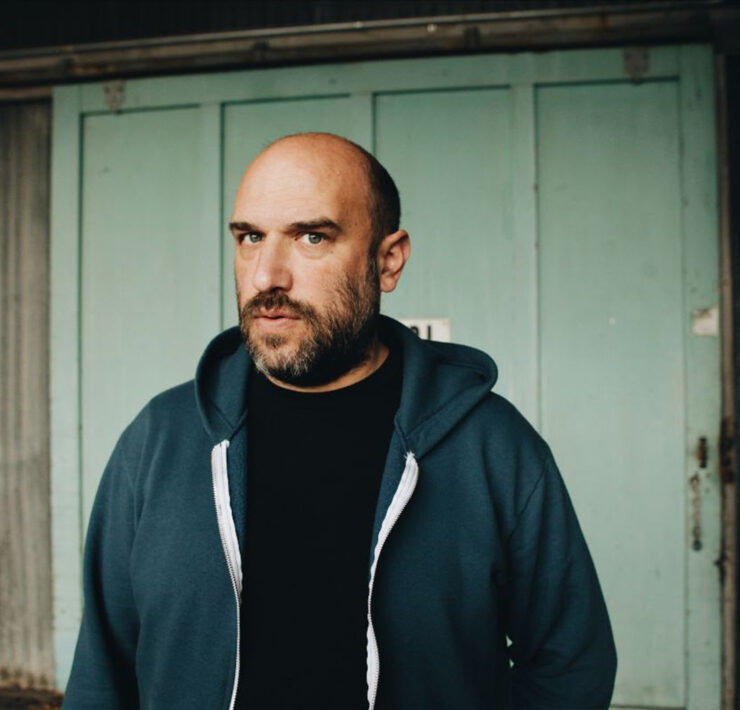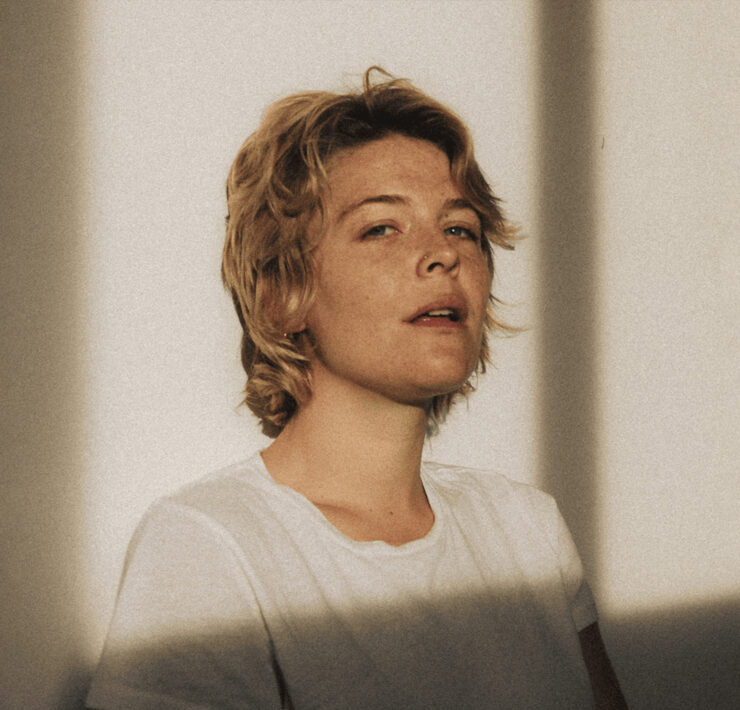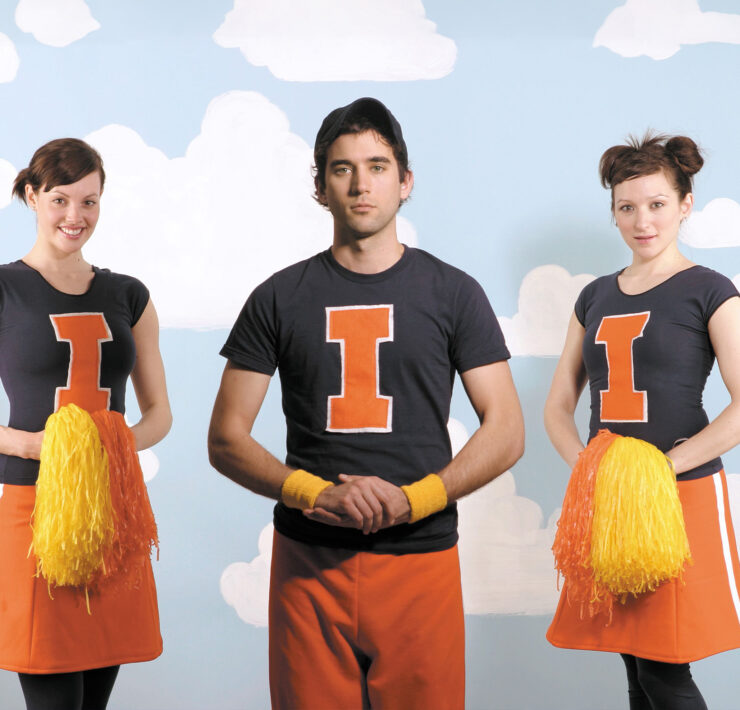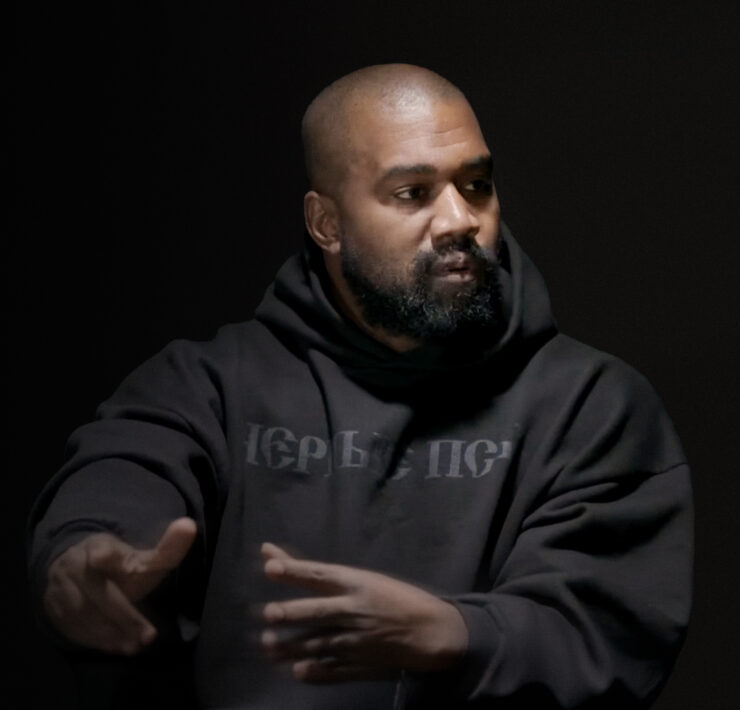Lauren Daigle was looking for an escape.
In 2020, the 31-year-old singer-songwriter, known for her bright clothes and even brighter personality, was struggling to make sense of her reality. Division, protests, political turmoil, a global pandemic, hopelessness — it was enough to make the normally optimistic Daigle question, well, pretty much everything.
So Daigle did what she knew best: she started writing a record.
A New Beginning
“During COVID, there was so much despair,” Daigle said. “I started writing these songs because I needed these songs to pull me out of that. I needed God to come and breathe on this experience for me, to remind me of how life can begin again.”
Over the next six months, Daigle slowly worked through her doubts, fears and frustrations to create her fourth studio album, Lauren Daigle.
Released five years after her breakout hit Look Up Child (which reached No. 3 on the Billboard charts), Daigle continually refers to her latest project as a sort of rebirth, a new beginning, a new chapter.
“This album is self-titled because it was definitely a new beginning for me internally,” Daigle said. “This was a new beginning for me to simply begin again. It was a step for me to say, ‘Okay God, I see places in my life that I have let go of and now I get to start over and regain the things that I thought I lost.’”
Daigle’s music feels like listening to one-part inspiring message, one-part personal journey. In a way unlike 2015’s How Can It Be and 2018’s Look Up Child, her new album is perhaps her most vulnerable.
“If I’m honest, this record is in a world of its own as far as how it relates to me,” Daigle said. “This record is the reflection of a new beginning of something transformative that took place in my life. God came in and whispered to me that I have this purpose and a reason for what I do, and I don’t have to lose myself along the way.”
Part of discovering this new beginning was going back to her roots. Daigle explained that her first album was all about figuring out how to make music. Her second album gave her the chance to explore her voice. And her third album allowed her to find the sound she’s been waiting to make her whole life.
“This record felt very natural, very organic,” she said. “I was surrounded by people who were in world-class positions of their own. So they didn’t have any need for me to be somebody. They already had their thing going, and then we got to partner together. I think that was really new and really fresh.”
Daigle refers to her producer Mike Elizondo (who’s worked with artists ranging from Fiona Apple to Carrie Underwood to 50 Cent) and Shane McAnally, a Nashville-based songwriter known for working alongside Kacey Musgraves and Kelly Clarkson.
“Looking back, I can see how God had orchestrated the right people at the right time, because here I was in a season where I felt completely powerless, completely voiceless because of the the state of the world at the time — but also because of things that have been taking place in my personal life,” she said. “But He surrounded me with people who were so confident, that used their voice for the right things, that knew who they were, that weren’t intimidated by the world. And I don’t think that was coincidental.”
A New Vulnerability
Of course, starting a new chapter can be a scary feeling for any creative person.
“I feel like that was something that was really hard in the beginning,” Daigle admitted. “How do I overcome the fear of a bad idea?”
At the beginning of her career, Daigle had to push past her fear and insecurities to say what she wanted to say. That inevitably meant there would be times when people would critique her or try to change her opinion, but she’s been learning to push past all of that, shifting her focus to something that she can actually be excited about. Instead of letting her fear silence her, Daigle’s chosen to let her authenticity speak loudly.
“Truthfully, I feel like authenticity is simply a by-product of who I am,” Daigle joked. “I always catch myself over-sharing in moments. But I love things that are authentic, and I’m definitely at a place where I want to sing about those authentic moments in my life.”
That doesn’t mean her previous albums were inherently unauthentic, she clarified. But with her new album, she wanted to push herself to be more vulnerable than she’d ever been before. “I feel like I talk about things that I haven’t talked about before lyrically,” she explained.
The album certainly has Daigle singling about themes we’ve never heard from her before. “Don’t Believe Them” dives into the struggle of determining truth. “Ego” where Daigle lets listeners into the battle she faces with her own pride. Her lead single “Thank God I Do” was written just weeks after she’d dealt with her own difficult COVID diagnosis.
Not the common themes fans might expect from her album. But, that doesn’t mean it’s an album full of despair. It is still Lauren Daigle, after all. So while she does dive into the messy and disruptive parts of life, her music is still full of much-needed hope and optimism.
“The darkness does not overtake the light,” Daigle said. “I mean, look at Revelation. In the end, Jesus comes back and wipes every tear. That’s a celebration after a time of despair. And that’s what we did with this record.”
Daigle explained the story arc of the album, beginning with “Thank God I Do” which “sees despair with the glimmer of hope.”
“So we acknowledge the despair there and then end at ‘These Are The Days.’ That song sheds light on how we might be in intense times, or we might be in moments where people are like, how much darker is the world actually about to get? What is going on? This is all crazy. But that song is to remind people that, no, there are so many good things on the horizon. There are still good things ahead.”
Daigle hopes that by the time listeners get to the end of the record, they feel more alive than they did when they began listening to it. It’s the same journey she went on creating the album.
From starting with a cry of desperation to releasing an album that reminds others good things are already here on earth, Daigle fully believes this is a message humanity needs to hear over and over.
Old, Familiar Faces
For all the ways that Daigle has changed in the five years since her last album dropped, there’s one thing that hasn’t changed, and it’s something that Daigle is fighting hard to make sure she keeps with her throughout her career.
“It doesn’t matter how big I get, I will always do what I can to make sure people know they are loved by me and by God,” Daigle said.
Daigle is excited to kick off her tour this summer and come face to face with people. Anyone who has spoken with Daigle knows that the faster she talks about a topic, the more passionate she is. And when it comes to talking about meeting her fans, she speaks about a mile a minute.
“We’re all looking for connections to people,” Daigle said. “And what we’re really looking for boils down to this: Can I relate to you, and can you relate to me? Or in an even simpler form than that, we’re asking, Can I love you, and are you capable of loving me? So how do we get to the simplest expression of that?
“Well, I think the simplest versions of connection are the purest versions of connection, when we can just look into someone’s eyes and say thank you!” she continued. “When we can look into someone ‘s eyes and say, ‘I see you.’ That does something so beautiful — not just for me, not just for the person next to me, but for humanity as a whole. Those are the experiences I long to bring into the world.”
That mindset has shaped all of Daigle’s decisions for her tours. Daigle wants to bring fans together, not just with her but with one another, creating spaces and experiences for them to connect in a deep and impactful way — a way that would allow a fan to show up and experience a radical amount of love.
Daigle knows how life-changing that love can be.
“I remember when I was a teenager, hearing stories about people who are really lonely and committing suicide wasn’t a thing in my teens as much as it is now,” Daigle said. “Obviously it happened, but it was either kept under wraps or few and far between. And I remember thinking that I can’t imagine what it would be like to be in this world that is so full of beauty and kindness and be so lonely.”
Daigle didn’t fully understand that loneliness until she was placed in isolation for nearly two years while it seemed the world was moving “900 miles an hour.”
“I now know how loneliness can feel, and knowing there are people who do not have a single friend, not one friend in the world, actually aches me to my core,” she said. “And so, I never know in those interactions with people at shows or even interactions with people in the grocery store or interactions with people that you see walking along the street, you just never know what kindness can do for just one person.”
On a recent flight, Daigle herself was reminded of how much one person’s kindness can make an impact.
“People need to hear the fact that there are still good people in the world, and there are still good exchanges happening in the world,” she said. “And I was sitting on a plane one day after that season where all of those videos were coming out about people getting in fights on planes, people getting kicked off of planes, all this stuff that’s like bombarding my brain, right? I remember getting on planes and feeling anxious for some reason.”
All of a sudden, Daigle began having a panic attack on a plane. She’d never experienced one before so she wasn’t sure what to do to stop it.
“Tears are falling down from my eyes and I don’t know what’s going on, so I go to get off the plane because they hadn’t closed the door yet,” she said. “But the person next to me just grabbed my arm and said, ‘Hey, I’ll do this with you.’ And I didn’t know this person, but she said, ‘Everyone will get to the other side, I promise. You just sit next to me. I’ll get you to the other side of this fight. Just trust me.’
“And there was this moment of looking at her and thinking, ‘Wow. for the past two years, we have been berated with information to not trust a single person around us because of the intensity of the time, or they might think politically different than you or you might trigger them and something might happen.’ And we’ve just been shown all of this information of why we should not trust people and why we shouldn’t talk to people anymore. But I’m sitting next to a woman who was telling me to trust her and she will get me to the other side. And so I said ‘Okay,’ and she got me through to the other side.”
Daigle’s interaction with a stranger on a plane is the perfect example of what the singer is all about. Community, compassion and unearned kindness. It’s something she hopes she can encourage others to pursue.
“People need to know at this time that people are still good,” Daigle said. “There are still people that are kind out in the world, that are trustworthy. You can lean on your neighbor, you can lean on people around you.”
The last few years have been some of the most tumultuous times in recent American history. Pandemic aside, the country has grown increasingly divided, in a way that caused Daigle to step back and figure out where her place was in everything.
“The animosity that erupted in the country shook me to my core,” Daigle admitted. “I was terrified of every person, not because of their belief system, but more because I didn’t know how reactionary people were going to be to me. Did I say something that was going to cause a visceral response?
“And that was paralyzing because it was unsafe in so many ways,” she continued. “Like, personal interactions became unsafe. And you see how much I longed for human connection. So that was a really tricky position for me to be in. So all that to say, I feel like the message people need to hear is that people are still good and they need to see and feel love.”
And while the pandemic was a difficult time for Daigle to navigate her feelings of disconnectedness and despair, she’s ready to get back on the road and spread some good old-fashioned love and kindness.
“You know, I’ve seen their shirts and stuff that say, ‘BE KIND!’” Daigle laughed. “And sometimes when a message is thrown in your face so much it gets watered down. But I feel like kindness is one of those things that doesn’t matter how many T-shirts are printed, it is always going to be just as impactful to the actual action of kindness. People need kindness. The world needs kindness, especially now.”
For the first time, Daigle’s passionate speech slows down a bit, because she begins to get emotional talking about how much she wants people to know they’re loved and cared for by someone in this world.
“Whenever I go to my shows, it’s like, this is the one chance that somebody might have to feel love,” she said. “They might not have had a hug for a year. Who knows the last time that somebody has looked them in their eyes? You just don’t know what people’s stories are. So I don’t care how big I get — I don’t even have a desire to be famous because it makes me really uncomfortable — but I deeply long for people to feel loved and I don’t ever want that to change.”

























